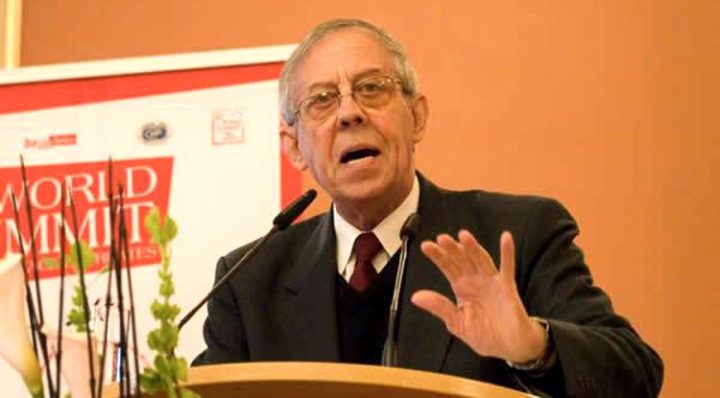16/9/18
Today marks the eighth anniversary of the death of Argentine thinker and writer Mario Rodríguez Cobos, who wrote under the pen name Silo. The founder of Universalist Humanism or New Humanism described himself simply as a writer and thinker.
That his legacy goes far beyond that is beyond doubt. On this occasion we would like to publish excerpts from the preface of the book “Silo a cielo abierto” by his friend Dario Ergas.
“Silo would insist many times after that, one thing is pain and another suffering. Pain is overcome with the advance of science and justice, but suffering is mental, it is proper to consciousness and cannot be overcome by scientific or political progress; it requires an evolutionary effort to differentiate the essential engine of human life from desires, which trap us and distract us from true meaning. The noblest tasks of the human being, I would repeat in many ways, are the overcoming of pain and suffering. […]
“To Humanize the Earth”, this was the impulse that developed a worldwide humanist movement and gave rise to the most diverse cultural, political and social organizations. As the action of the Humanist Movement strengthened, Silo outlined the theses of Universalist Humanism or New Humanism. They put existence first before any idea, generality or superstructure that could be said about the particular and concrete human being. From the existential analysis Silo rescues a common basic attitude of the human being independently of their epoch and culture that he calls the humanist attitude. This attitude is characterized by placing the highest value on human life and human freedom and finds them in historical moments in which
1) the human being is the maximum value over money, religion, the State, social models and systems;
2) Freedom of thought is promoted;
3) equality of rights and opportunities for all human beings is promoted;
(4) The diversity of customs and cultures is recognised and encouraged;
(5) All discrimination is opposed;
6) Non-violence is enshrined as a methodology of change and all forms of violence, whether physical, economic, racial, religious, sexual, psychological or moral, are repudiated.
From different angles Silo would develop during the following decades these themes of suffering, death, transcendence and the human project. In psychology with “Guided Experiences”, “Psychology of the Image”, and “Psychology Notes”; in Historiology, with “Historiological Discussions”; in sociology and politics with “Letters to my Friends”; in cultural anthropology with “Universal Roots Myths”; in morality and mysticism with different talks compiled in “Silo Speaks”; in literature with the stories of the “Day of the Winged Lion”; in humanism with the “Dictionary of New Humanism”. Above all, through action, not only as a theoretical outline, but in the setting in motion of a worldwide movement for human development, for the convergence of cultures, for the end of wars, for political and social change, for good knowledge, for peace and non-violence. […]
In the same speech [May 4, 1999 in Punta de Vacas, ed.] he announced the approaching change of era, the birth of a new spirituality and the first planetary civilization that hints at the horizon of humanity.
It is the announcement of a new spirituality that abandoned its external support and is making its way into the interior of every human being. It is a response to the personal and collective imbalance due to the upheaval suffered by the most ingrained cultural beliefs. While this great change takes place, the Parks of Study and Reflection are prepared to be places of psychological recomposition and encounter with oneself and others.
Silo’s Message helps those who need to find the transcendent meaning of life and orient themselves towards internal unity; the Humanist Movement creates channels of participation to transform social models at the same time as everyone seeks a profound change in themselves. The future is open and approaching from the longed-for Universal Human Nation of all and for all.”
Translated from Spanish by Pressenza London










